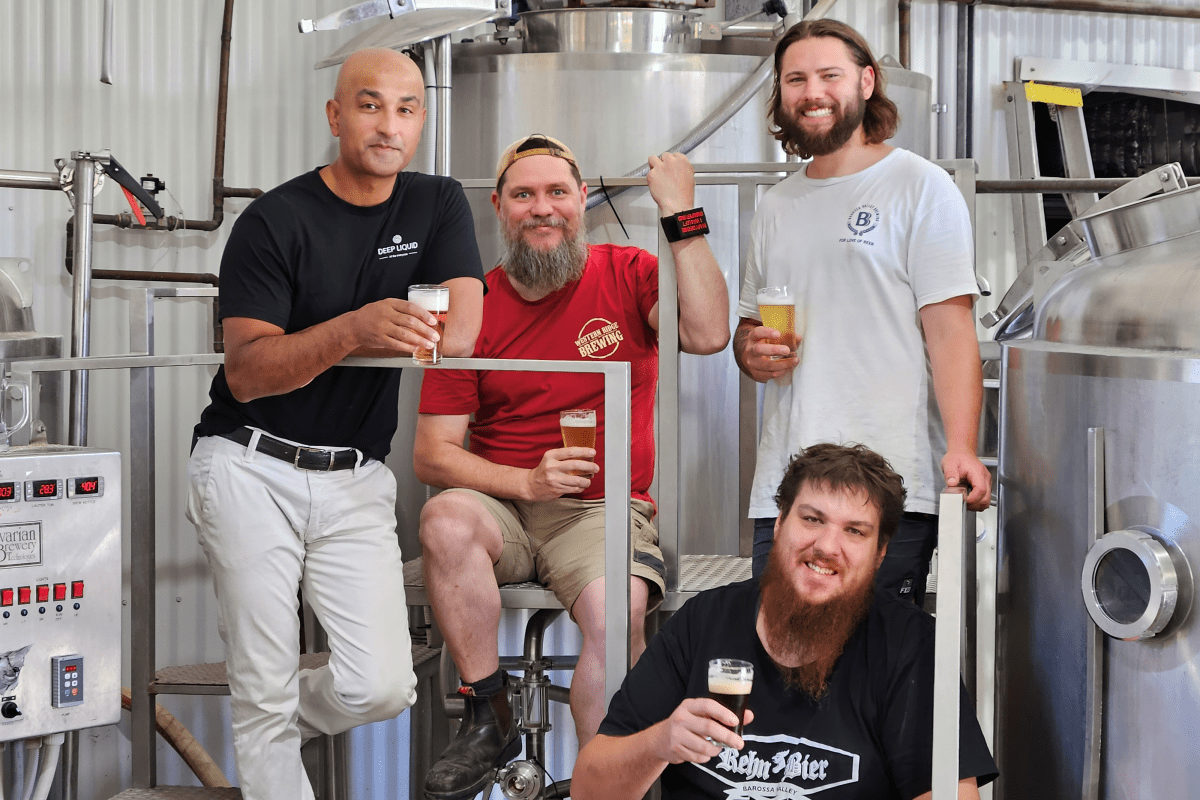With the current economic climate pushing many independent breweries into voluntary administration, four South Australian breweries have joined forces to address some of the challenges they are all facing.
Barossa Valley Brewing, Western Ridge Brewery, Rehn Bier and KI Brewery are collaborating on an innovative model which will reduce costs through bulk ordering, shared warehousing, and delivery costs. The four breweries have also advertised for a sales manager to oversee the diverse portfolio of beers. This allows the craft breweries to maintain their independence while also seeing some of the benefits that scale affords industrial breweries.
David Henderson, Co-Founder of Western Ridge Brewery, initially made the decision to close the Barossa brewery in mid-2023. However, after discussing options with local brewers and Adelaide-based AI start up Deep Liquid, Western Ridge Brewery changed plans, with Henderson taking over operations from his co-founders and executing a new plan.
“Craft breweries flourished because we dared to do what multinationals couldn’t. Our instinct as independent brewers is to collaborate and build community. In today’s market, we need to harness this spirit to use technology to disrupt the scale advantage of multinationals,” he said.
Deep Liquid will also provide the breweries with access to cutting edge AI technology. One major feature is a QR code that will be displayed on cans and direct customers to a reviewing platform. These reviews will then be fed into a neural network to distil the information from a large number of individual reviews, allowing brewers to respond to customer feedback in less time.
According to Denham D’Silva, Founder of Barossa Valley Brewing and Co-Founder of Deep Liquid, independent breweries have the ability to gather rich data in a way that large-scale breweries do not.
“Nobody ever gets on Facebook or Instagram to say ‘I just tried this Heineken. You need to try it.’ Whereas that happens all the time with my beers. That is really rich data. While larger breweries have a lot of data, it’s what we refer to as narrow data. The other big advantage is that with larger breweries, it will take the business a year to respond to data, whereas we can use this right away,” he said.
In addition, collaborating with other breweries has the positive effect of increasing the volume of data that can be gathered through AI platforms.
“Collaboration is really powerful, and while it’s great that we can collect data from our fans, it is much better if the platform is broad and we collaborate with other craft brewers,” D’Silva added.
Western Ridge Brewery has already started to use Deep Liquid AI to co-ordinate procurement, logistics, and storage.
“The core opportunities AI presents are about improving the speed, precision and accuracy of our decision making. No matter how agile a business I run, I can still be caught flat footed if I don’t have good and timely decision-making data,” Henderson said.
“We can use it to both disrupt and leverage the advantages of scale the multinationals rely on in a way that respects the importance of our supporters to our business. We also need to use it as we already are, to identify opportunities to collaborate, where we can work together to reduce costs and improve the value we deliver to our drinkers.”
D’Silva hopes to see other breweries utilising AI and working together to weather the current economic climate.
“What has fuelled the growth of the craft brewing industry, despite these challenges, is our ability to cooperate and innovate. AI gives us an opportunity to innovate again in a way we haven’t been able to do before,” he said.
“In terms of cooperation, that’s what we’ve done very well as an industry. We need to control what we can control and fall back on our strengths, and this alliance that we’re creating allows us to do exactly that.”

